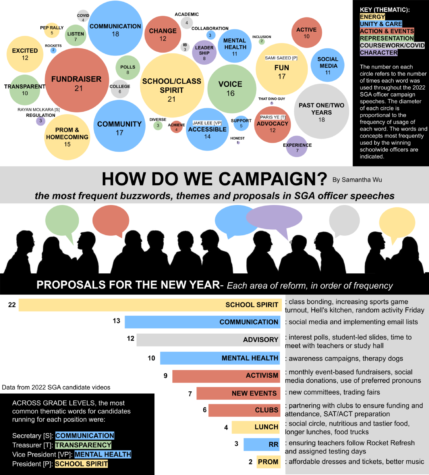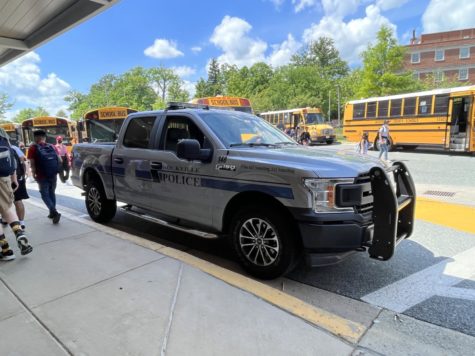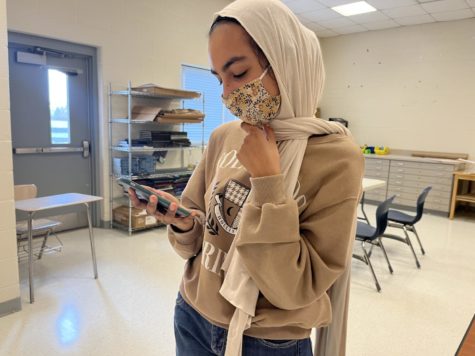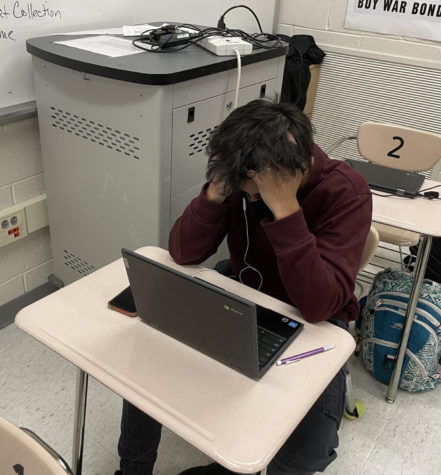Rockville region takes green initiatives
Rockville is taking steps to address local environmental concerns by adopting its first ever climate action plan.
Rockville adopted its first Climate Action Plan on Jan. 15 , which aims to reduce greenhouse gas emissions and prepare the community to adapt to the changing climate. The plan takes a novel approach through its attempt to incorporate equity, by reducing environmental disparities in low-income communities by prioritizing mitigation and resiliency strategies.
With this plan initiated, Rockville’s goals are to decrease greenhouse gas emissions by at least 50 percent by 2030, begin the transition towards electric vehicles and public transit, and achieve carbon neutrality by 2050. According to the Rockville government website, the plan will also evaluate the city’s climate-related risks and collaborate with community stakeholders to improve community adaptation and resilience.
In the January 10 Mayor and Council meeting, Rockville Sustainability Coordinator Amanda Compbell said the draft of the plan was revised “following a lot of comments [the draft] got, including considering ways to avoid green gentrification, considering multilingual alerts including hazardous sites among climate risk assessments, considering how digital poverty might preclude participation in climate planning, as well as the need to ensure equal access to electric vehicles and infrastructure.” Digital poverty is the lack of access to technology in an area, a phenomenon that has become more widely acknowledged and addressed at the school level during the COVID-19 pandemic through distributing Chromebooks to students.
The new draft provides further details on Rockville’s climate actions in terms of energy efficiency, renewable energy, transportation, land management and public education–all of which will be provided with ongoing resources under the plan. Among these actions, Rockville has also developed plans to expand home repair programs to improve energy efficiency, promote solar, geothermal and feasible solar photovoltaic system installations throughout Rockville, plant more trees and expand residential recycling programs in the city.
“[Climate change] effects will continue for a few decades regardless, but if global emissions are reduced quickly, the longer term risks are lower than if they stay the same or rise,” Campbell said. “Rockville is working on doing our part to reduce city and community emissions.”
Shortly following the approval of the Rockville Climate Action Plan, MCPS began consideration of a new sustainability policy. This proposed policy strives to uphold “sustainable” practices in MCPS, educate about climate change and its consequences, and set expectations for sustainability across MCPS.
Similarly to the Climate Action Plan, this policy is focused on improving energy efficiency and reducing greenhouse gas emission in schools–especially in the key areas of providing affordable carbon-free electricity, decreasing the carbon footprint of MCPS buildings and facilities, and transitioning to electric vehicles.
One of the main implementation strategies laid out by the policy directs the new superintendent, Dr. Monifa McKnight, to expand the development of sustainability programs throughout the county, including the expansion of Maryland-certified Green Schools. The Maryland Green Schools Program works with schools to encourage students to take sustainability actions to reduce environmental impacts and increase awareness of how human action affects climate change–aligning with the policy’s goal to enhance education on climate change in MCPS.
Richard Montgomery is among the 664 schools in the state currently holding “Green School” status, which must be renewed every four years. As RM’s last renewal was four years ago, the school is required to reapply to the program this year by March 17 to retain its status as a green school. Schools applying to the program must provide examples of sustainability changes they have made and how they plan to remain green over the next four, eight and twelve years in terms of curriculum, sustainability practices, and community partnerships and participation.
Both plans stand as proof of the region’s movement towards higher sustainability and energy efficiency standards as climate change becomes a main priority among Maryland communities. According to a poll of Maryland voters done by public opinion researcher Patrick Gonzales in December 2021, 63 percent of Maryland voters statewide believe that clean-energy policies to cut pollution should be prioritized by General Assembly leaders, and 51 percent of Maryland voters say that combating climate change is as “equally important” as issues concerning health care, education, the economy and COVID-19.
Your donation will support the student journalists of The Tide, Richard Montgomery High School's student newspaper. Your contribution will allow us to purchase equipment and cover our annual website hosting costs.
Erica Saulsbury is a freshman at Richard Montgomery HS and is super excited to work on the news section of the Tide this school year! In her free time,...












